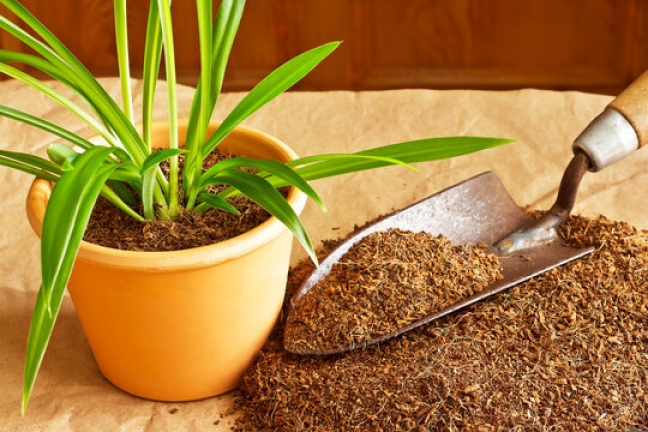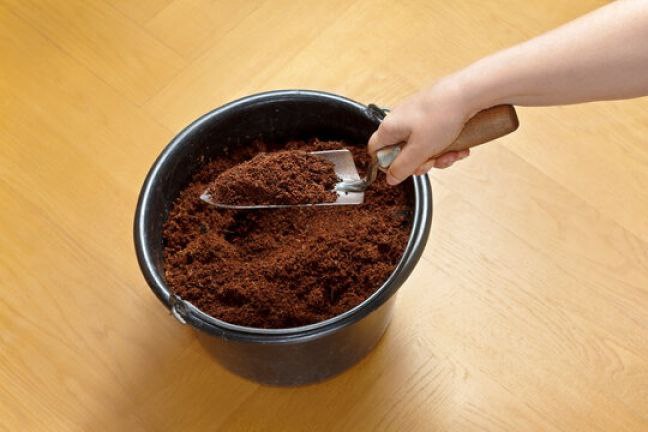In an era where sustainability takes center stage, finding eco-friendly alternatives for gardening and farming practices is crucial, Coir Pith: The Eco-Friendly Solution for Sustainable Farming, an exceptional solution sourced from the bountiful coconut plantations of this Indian region. Coir pith, often referred to as coco peat or coir dust, offers a plethora of advantages that make it an ideal choice for environmentally conscious growers. In this article, we will explore the many benefits of coir pith from Kerala and how it is reshaping the way we cultivate plants and crops. Get ready to unlock the potential of this green alternative, hailing from the land of Kerala, for a brighter and more sustainable future.
Understanding Coir Pith from Kerala, Coir pith, derived from the coconut husk, serves as a natural byproduct with immense value in horticulture and agriculture. This dark brown fibrous material boasts exceptional water retention capacity, excellent aeration properties, and a rich nutrient profile. These unique characteristics position coir pith from Kerala as an outstanding choice for growers seeking sustainable alternatives.

Coir pith from Kerala is obtained through a process involving the soaking of coconut husks in water, facilitating the separation of fibers. Once the fibers are extracted, the remaining material, known as coir pith, is collected, dried, and processed into various forms such as blocks, briquettes, and loose coco peat. This eco-friendly process ensures that every part of the coconut is utilized, making coir pith from Kerala a truly sustainable option.
Advantages of Coir Pith from Kerala in Gardening and Farming
Enhanced Water Retention and Aeration: Coir pith possesses exceptional water retention capacity, enabling it to hold up to eight times its weight in water. This characteristic ensures a consistent and balanced moisture level for plant roots, making it particularly beneficial in arid regions or for
plants that require higher moisture environments such as orchids and ferns. Moreover, coir pith promotes proper drainage, preventing waterlogging and the risk of root rot, commonly observed in traditional soil-based gardening.
Nutrient-Rich and pH Neutral: Coir pith from Kerala contains essential plant nutrients including potassium, magnesium, and iron, promoting robust growth and development. Unlike conventional soil, which can be nutrient-deficient or imbalanced, coir pith provides a neutral pH environment, allowing growers to precisely control nutrient intake tailored to specific plant requirements. Additionally, the slow-release nature of nutrients from coir pith reduces the need for frequent fertilization.
Weed Suppression and Disease Resistance: Coir pith from Kerala acts as a natural weed deterrent, minimizing the need for herbicides or manual weed removal. Its loose structure allows plants to thrive while impeding the growth of unwanted weeds. Furthermore, coir pith exhibits natural resistance to pests and diseases, reducing the reliance on harmful chemical pesticides. This makes it an attractive choice for organic gardening and sustainable farming practices.
Applications of Coir Pith
Container Gardening
Coir pith from Kerala’s lightweight and manageable nature makes it an excellent choice for container gardening. Whether you’re cultivating herbs on your balcony or nurturing ornamental plants indoors, coir pith can be used as a standalone growing medium or mixed with traditional soil to enhance water retention and aeration.
Seed Starting and Propagation
Coir pith from Kerala provides an optimal medium for seed germination and propagation. Its fine texture and water-holding capacity create a conducive environment for seeds to sprout and young plants to develop robust root systems. Additionally, the absence of weed seeds in coir pith ensures that your seedlings won’t have to compete for nutrients and space.
Hydroponics and Vertical Farming
The hydrophilic properties of coir pith from Kerala make it well-suited for hydroponic systems, where plants are grown without soil. In this setup, coir pith serves as a substrate, providing necessary support and moisture for plant roots. Similarly, in vertical farming where space is limited, coir pith can be utilized as a growing medium in stacked systems, maximizing productivity while conserving resources.
Frequently Asked Questions (FAQs)
Is coir pith from Kerala environmentally friendly?
Certainly! Coir pith from Kerala is a sustainable and eco-friendly alternative to traditional gardening and farming practices. Sourced from renewable coconut husks and processed without harmful chemicals, coir pith contributes to waste reduction and supports a greener future.
How do I incorporate coir pith from Kerala into my gardening routine?
Incorporating coir pith from Kerala into your gardening routine is simple. Just hydrate the coir pith with water, fluff it up, and use it as a growing medium or as a soil amendment. Fill containers, pots, or raised beds with moistened coir pith, and plant your desired seeds or plants. Water as needed, taking advantage of coir pith’s water retention properties.
Can coir pith from Kerala be reused?
Absolutely! Coir pith from Kerala can be reused for multiple growing cycles. After each cycle, remove old plant roots and debris, and amend the coir pith with fresh nutrients if necessary. This reusability not only adds to its cost-effectiveness but also minimizes waste.
In summary, coir pith from Kerala offers a sustainable and eco-friendly solution for gardening and farming practices. With its remarkable water retention, aeration properties, and nutrient-rich composition, coir pith from Kerala is revolutionizing the industry and paving the way for a greener future. Embrace the potential of this green alternative sourced from Kerala, and join the movement toward sustainable cultivation.

